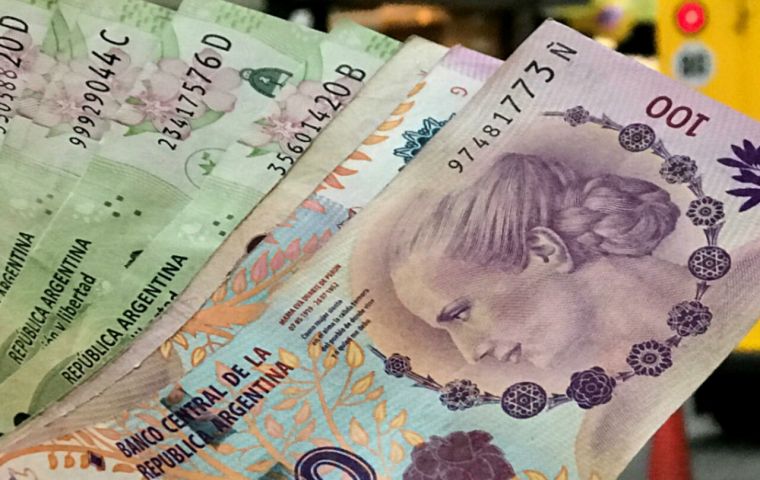MercoPress. South Atlantic News Agency
No devaluation needed for now in Argentina
 A devaluation is not necessary for now, because exports of industrial goods grew 20% between January and October
A devaluation is not necessary for now, because exports of industrial goods grew 20% between January and October The Argentine administration of President Alberto Fernández has been reported to have under its sleeve a strong trade surplus for the month of October with which pressure to devalue the local peso will be deflected, at least for now.
According to El Cronista, October's trade surplus would be just over US$ 1.7 billion, the highest since August 2021. The new favorable data is said to stem from a strong jump in exports of primary goods (with “soy dollar” balances), and of industrial goods, while purchases abroad were restricted under the new Import System (SIRA) and foreign exchange policies.
Argentina exported US$ 7.823 billion and imported US$ 6.111 billion in October, El Cronista also published. The positive balance of US$ 1.712 billion outpaces September's meager US$ 414 million surplus following a quarter of monthly deficits. April remains the best month of 2022 for Argentina with a US$ 1.454 billion surplus, according to the National Institute of Statistics and Census (Indec). Although Argentine exports of agricultural manufactures fell by 7%, it continued to be the item that contributed the most in foreign currency to the country's economy: US$ 2.507 billion.
Imports grew 16% annually, but it was a sharp slowdown from previous months. Between January and October, imports increased at a rate of 38% against 2021 figures. Last month, the purchase of fuels grew 70% annually (US$ 669 million).
A new Indec report on foreign trade is due Nov. 22.
Tougher import restrictions and a better export performance gave way to a greater accumulation of dollars, at a time when the Central Bank (BCRA) has been making net sales in the single market for about US$ 1.5 billion for a month and a half, as Deputy Economy Minister Gabriel Rubinstein ruled out an exchange-rate unification via a devaluation.
Rubinstein also admitted the country's reserves were US$ 20,000 short. But to eliminate the gap between the various exchange rates, the ideal figure would stand somewhere between the official dollar and the parallel “blue” dollar, which would imply “a devaluation component”.
Hence, a devaluation is not necessary for now, because exports of industrial goods grew 20% between January and October and total almost US$ 19.296 billion, almost twice as much as in 2020 and 50% above 2019 values.
So far in 2022, exports are up 15% year-on-year and total US$ 74.951 billion at FOB value, according to official data. CIF imports more than doubled, 38%, to US$ 70.631 billion. But this year,
156% more was imported in Fuels, with a difference of US$ 7.248 billion.
Even with exports at their highest levels in at least four years, the trade surplus of US$ 4.320 billion is nowhere near the nearly US$ 14.000 billion accumulated a year ago and over US$ 11.000 billion in the two previous years.
(Source: El Cronista)




Top Comments
Disclaimer & comment rulesCommenting for this story is now closed.
If you have a Facebook account, become a fan and comment on our Facebook Page!